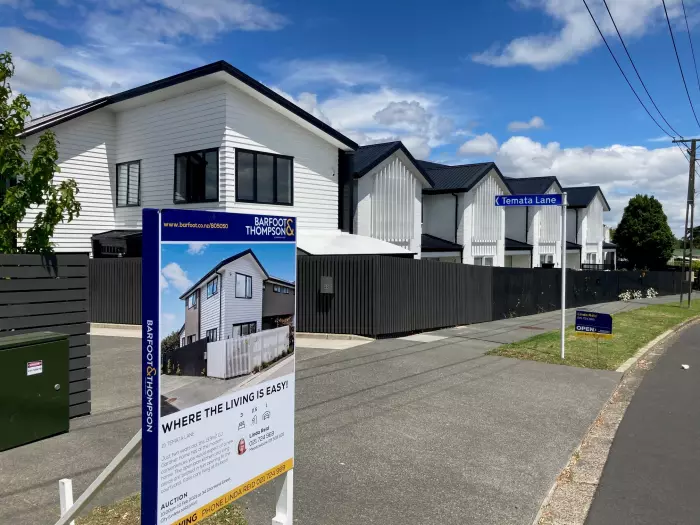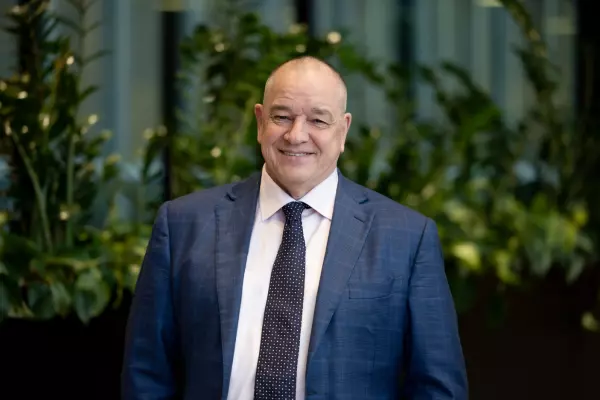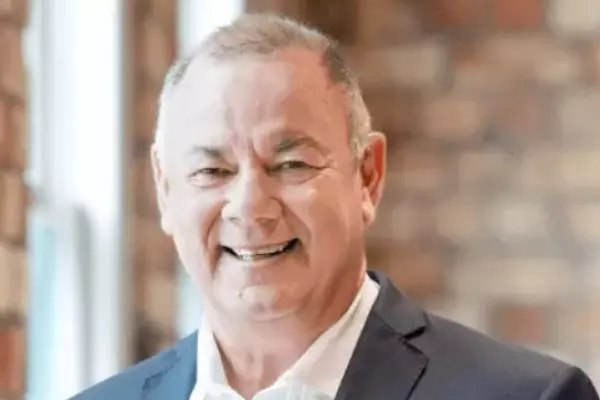BusinessDesk investments editor Frances Cook responds to emails from readers each week to answer questions about money. Below, you will find her expert advice. Send your own questions to [email protected].
Hello,
I am wanting to look into how much I can get for a loan, and looking into buying my own house. I am wondering who is it best to speak to, the bank or a mortgage broker? I’ve heard brokers are better. Why is that?
Also, is this a good idea for me? I am 30, earn $75k and have a bf but not looking to live together for a while… would I be able to borrow that much? How much would I need to have saved before I could really afford a house?
Thanks,
T
Hi T,
This certainly could be a good idea for you. It depends a bit on where you are in the country and what you want.
It’s up to you whether you want to work directly with a bank, or with a broker. Both have their pros and cons.
Sometimes when you go directly to the bank, you can get a better deal. This is particularly if you go to the bank you’re currently a customer with.
If you want a low-deposit home loan, which is considered to be anything under 20% of the purchase price, banks have to be careful. They can legally only give out a certain number of these types of loans, to ensure they don’t have too many high-risk loans on their books.
So, when they can only bend the rules for a certain number of people, they often give first priority to their existing customers.
However, a mortgage broker can be really helpful for shopping around.
They know all of the loopholes, they know which banks are friendliest this month (and yes, it can change month by month), they know who has the best rates and how to get you a little sweetener like a cash contribution.
A mortgage broker also doesn’t cost you anything. They charge the bank that you end up working with.
Mortgage brokers can be particularly useful if you’re on the edge of whether or not you’d get accepted. They know how to turn things in your favour.
Personally, I like to hedge my bets. I might make an appointment with the bank, as well as an appointment with two mortgage brokers who I’ve heard good things about.
Then see who seems like the best fit for you.
As for the rest of your questions? Time for my most overused sentence in this column… let’s run some numbers.
The deposit amount
How much you need depends on where you live in the country. If you’re in Auckland, it’s going to be a lot more than Gore.
The standard is that you need 20% of the purchase price of the house.
However, as mentioned above, banks can give a small number of customers a loan if they have a smaller deposit.
If you have a decent income (which you do) then they’re more open to you putting down something like 10%. In some cases, you might even be able to do 5%.
The trick is, they want to be sure that you can pay back the mortgage. This is called the “affordability test”.
That is more difficult if you're buying a house on your own. It's not impossible, by any means, just be aware that it's not as easy.
Have a look at house prices in your area. See what’s for sale and how much they want for it. You’ll probably be looking at the lower end of the market as a first-home buyer, so don’t be put off if that looks a bit modest at first.
Your first home doesn’t have to be your forever home.
Another good test is to look up mortgage calculators to see how much the weekly repayment would be.
Google "mortgage calculator" and whichever bank you’re currently a customer of. See how much they think your weekly repayment would be.
Banks will look at this when they decide whether or not to give you a mortgage.
However, they will also test you at slightly more than what current mortgage rates are. They want to be sure you can keep paying the mortgage even if the economy gets worse.
That’s often 2% more than whatever the current advertised mortgage rate is, so let’s say for argument’s sake, about 8% right now.
If you pop that into the mortgage calculator, can you still afford that weekly repayment? That’s what the bank will be looking at, so it’s important you see it from their point of view.
Build up that deposit
Putting together a house deposit can be daunting, but it’s not impossible. There are some government schemes to help you.
First of all, there’s using your KiwiSaver. If you’ve been putting money into KiwiSaver for at least three years, you can withdraw all but $1,000 of it to use for your first-home deposit.
There’s also the KiwiSaver First Home Grant.
You can get up to $5,000 towards your deposit for an existing house, or $10,000 for a new build. Something like a turnkey property or townhouse development can make a new build a less intimidating option than you would think.
You can learn more about the First Home Grant here.
If you buy with someone else, you can both use your First Home Grant, meaning you’d get up to $20,000 more towards your deposit.
As I mentioned before, you can sometimes get a 5% deposit home loan. One way is through the Kainga Ora First Home Loan, which you can learn more about here.
If you’re willing to have a flatmate, that could also improve your situation with the bank.
The last time I checked, a flatmate could mean the bank would increase how much it was willing to lend you by about $100,000.
That’s because the bank considers it an increase in your income (which it is) and that helps you pay off the mortgage.
So, if you’re looking at places that would have a spare room, consider whether you’re willing to live with someone else.
Bottom line
All up, I think you’ve got plenty of options here. If it’s something you want to make happen, go for it.
Set up those meetings with the bank and a couple of mortgage brokers and see what they think of your financial position.
A meeting doesn’t mean you’re committed to working with them. They can just help you figure out where you are now and how to get to where you want to be.
If it’s a good fit, and their advice makes sense to you, you can continue to work with them and hopefully make that first home happen.
You’ve got this.
From the inbox
David Verry, a financial mentor from North Harbour Budgeting Services and Auckland Central Budgeting, writes about last week's topic on paying off debt versus building up savings:
Hi Frances,
Read your article in Herald on Sunday Reset today.
Totally agree with your Debt Avalanche (pay off the highest interest rate debt first) and Debt Snowball (get rid of a few smaller ones for psychological reasons).
As a financial mentor, we are all trained in the three-month emergency fund theory – I say theory because the vast majority of people we deal with have little hope of getting this together due to their debts and budgets which, more often than not, are in deficit. I often rename it to “having access to an emergency fund”.
What I advise clients who have debts, and at least one that is revolving (a credit card or overdraft that is able to be redrawn), is to “save” for the emergency fund by paying down the revolving credit facility (with any excess cash they have or by the amount budgeted to “build” the emergency fund) and then draw on that facility if the emergency arises.
That way there is no interest-rate mismatch (getting, say, 3% on the emergency fund deposit whilst paying 13-19% on the credit card).
Once the credit card is down to zero, you can then start a deposit fund (but keeping the card until the emergency fund deposit reaches the desired level).
Of course, the other part of this equation is that the credit card is not used for anything else and there is an ongoing ability to pay the minimum balance due each month (which is what we start with in the budgets we do) so the debt itself is reducing, albeit slowly as often most of the minimum repayment is made up of interest.
Unfortunately, many clients sit with their credit card maxed out, pay the minimum each month and then redraw up to the limit!
We try to get them off this by doing weekly cashflows and only using cash (in their current account) to pay for everything. Some of course have utility bills and other commitments going on their credit cards which does add a complication that the cashflow needs to take account of.
Where clients are using an overdraft it’s about seeing the debit balance reduce so that it can be redrawn for the emergency.
The other thing that many people don’t take account of in budgets are the “annual expenses” that we must guesstimate – birthday/Christmas presents, doctors/dentists/optometrists, clothing/shoes, haircuts, repairs/maintenance/household item replacements, car maintenance, vets.
Some annual expenses (often paid in one lump sum) we do know about (rates, insurances, regos, WOFs) but even these can change.
I encourage clients to “save” for the annual expenses in the same way, pay down the revolving credit facility and redraw it as the annual expenses occur.
Just some thoughts!
Some great thoughts – thanks for writing in, David.
Send questions to [email protected] if you want to be featured in the column. Emails should be about 200 words, and we won't publish your name. Unfortunately, Frances is not able to respond to every email received or offer individual financial advice.
Information in this column is general in nature and should not be taken as individual financial advice. Frances Cook and BusinessDesk are not responsible for any loss a reader may suffer.














